
Thanks to a newly proposed bill that is currently making its way through US Congress, electric bicycles may soon qualify for a significant tax credit in the US.
The Electric Bicycle Incentive Kickstart for the Environment (E-BIKE) Act would create a 30% tax credit for e-bike purchases in the US.
The bill was created by Representatives Earl Blumenauer (D-OR) and Jimmy Panetta (D-CA). As it is currently written, the bill would qualify for e-bikes up to 750W and priced up to $8,000.
The tax credit would be maxed out at $1,500, meaning e-bikes up to and beyond would receive the max credit of $1,500.
The goal of the legislation is to promote the adoption of electric bicycles as alternative transportation, which could potentially replace large numbers of cars on US roads. Electric bicycles have much smaller carbon footprints than cars, even compared to electric cars. They also provide exercise for riders, which is an increasingly important concern in a country like the US currently facing an epidemic of obesity.
We reached out to a number of electric bicycle companies in the US to hear their thoughts and perspectives on the proposed legislation.
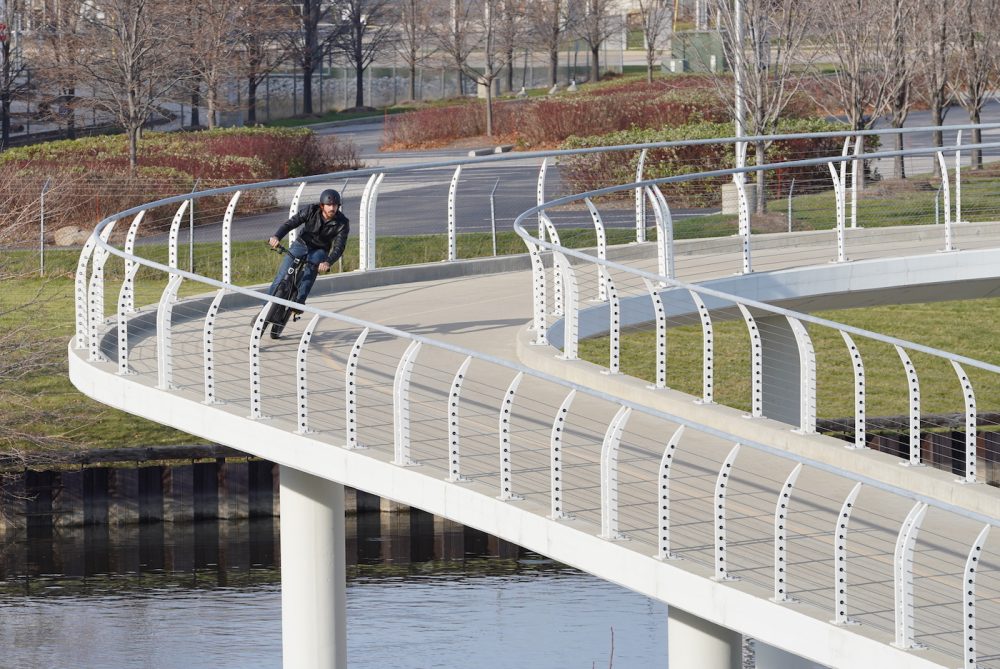
Priority Bicycles
, based in NYC, makes high-end electric and non-electric bikes. The company’s recently launched Priority Current redefined the concept of a value-priced, belt-driven mid-drive electric bikes.
David Weiner, founder and CEO of Priority Bicycles, explained why it makes sense to encourage e-bike adoption due to the wide range of benefits these bikes provide:
Once you ride an e-bike, it’s a lifestyle change. You begin to opt for the bicycle over the car, lowering traffic, moving your body, and smiling a whole lot more. As you spend more time on the bike, traveling in fresh air, you create a stronger health baseline. You invest your time and energy into your community. As a commuter, I show up at working faster, happier, and healthier. As a father, I feel the benefit of exposing my children to an active approach to life, and certainly prefer it over the confines of a minivan.
The proposed tax credit accelerates accessibility and opens up a waterfall of positive benefits. E-bike adoption as a better mode of transportation is happening. If we accelerate it, the only outcomes are positive. Less traffic, less fuel use, more healthy people on bikes smiling.
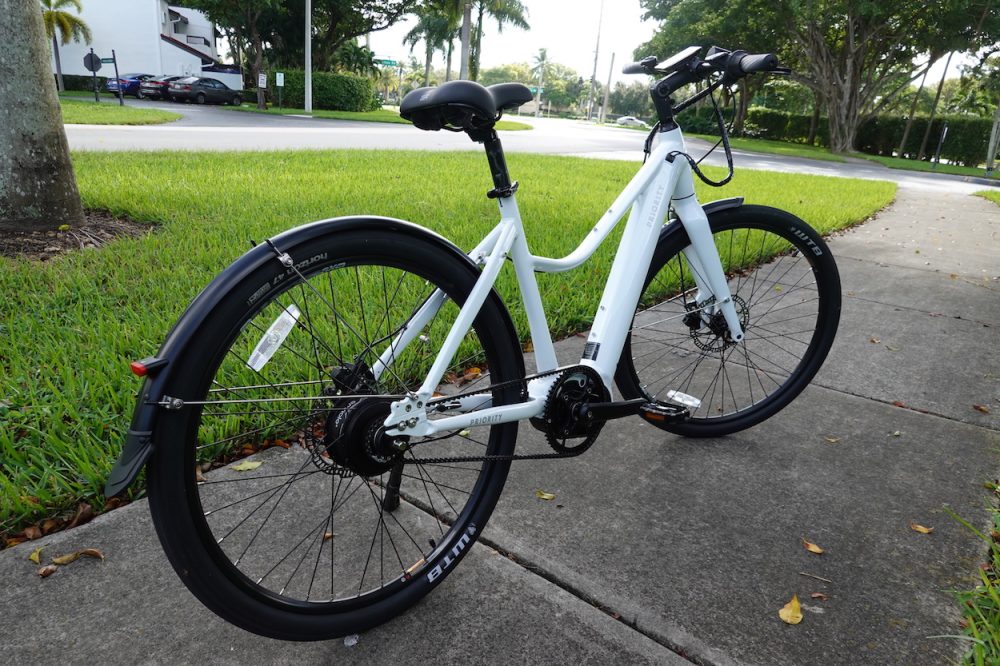
I definitely agree with David, and his points are the same ones I try to make to people when I evangelize about e-bikes.
The diverse array of benefits across so many different areas are frankly quite astounding to me.
Rad Power Bikes
Seattle-based is the largest and most active e-bike company in the US by a long shot. The company recently debuted its most affordable e-bike yet, the $1,099 RadMission.
We caught up with founder and CEO Mike Radenbaugh to hear his thoughts on the pending e-bike tax credit legislation:
First of all, this is so exciting to see. I feel like we’ve really turned a corner in a lot of ways coming into this new year. Frankly it has been a breath of fresh air to see this focus on electric bikes as a key tool to achieving our climate and environmental targets as a nation. And I’d even extend that to achieving our mobility targets and even our health and wellness targets for our nation. For anyone in the e-bike space, this feels like an incredible moment of validation that e-bikes are being seen now as an incredibly practical solution that are solving some of our country’s biggest problems. And so the tax credit is really a large symbol of that.
From what we know at this stage from our public relations team and from our legal team is that this tax credit has a very high chance of passing. There have been a lot of chances for something like this in the past along with other incentive plans that were introduced but that haven’t gotten any ground, but this one looks like it has a much higher likelihood of passing. I just think this is such an amazing testament to e-bikes. People said the ‘year of the e-bike’ was last year, but I don’t think we’re anywhere close yet. I feel like we’re on the first or the second step of a big staircase on this. And this is surely going to be an accelerant to the democratizing of e-bikes.
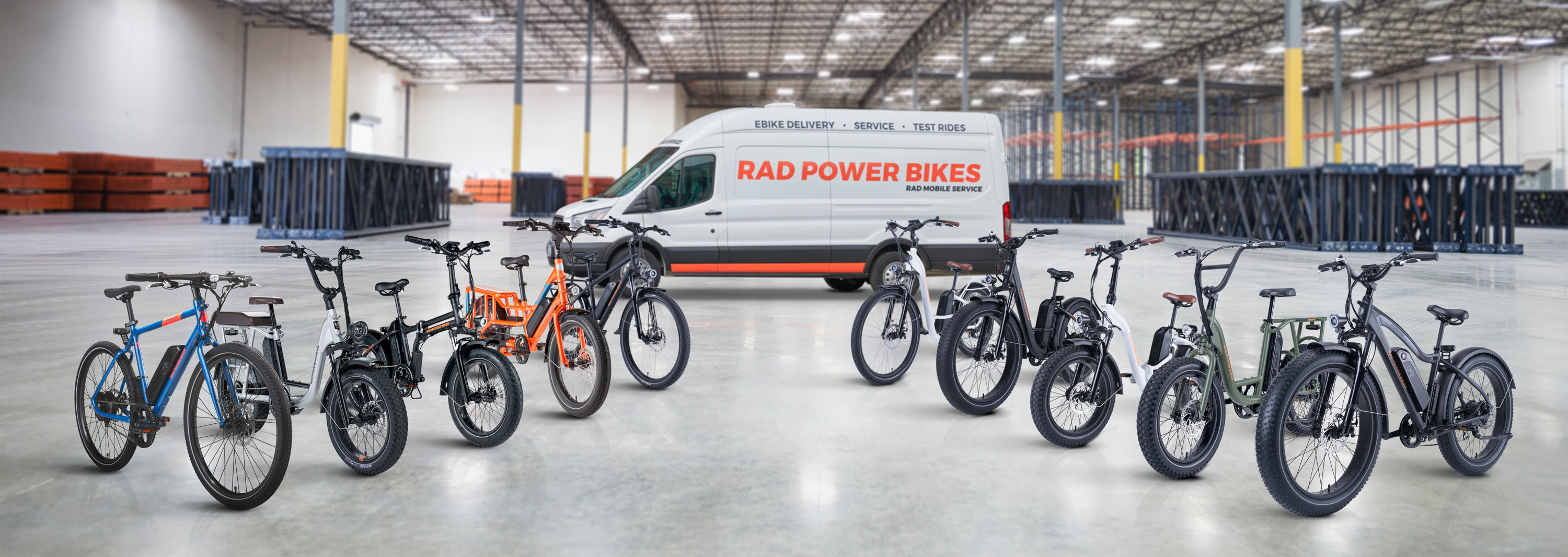
I share Mike’s feeling as well, that for those of us who have worked in the e-bike industry for years, this is very much a moment of validation.
We e-bike riders have known the benefits of e-bikes for a long time, and it’s great to see the rest of the country beginning to understand what we’ve appreciated for so long!
Juiced Bikes
San Diego-based Juiced Bikes has been in the US e-bike game longer than just about anyone. From to high-powered electric mopeds, Juiced has focused on bringing lower prices to the higher performance end of the e-bike spectrum.
Juiced Bikes’ founder and CEO Tora Harris joined us to discuss his thoughts on the pending e-bike tax credits.
We’re thrilled the E-Bike ACT tax credit bill has been introduced to Congress, and we’re cautiously optimistic this legislation will eventually be signed into law. It’s a welcome reminder that electric bikes have dramatically evolved over the last decade. Ten years ago, e-bikes were still somewhat of a fringe movement, rejected by the industry and regulated off the streets in markets as important as New York City. Fortunately, however, consumers have been steadily realizing the enormous benefits of riding an electric bike, evidenced by extraordinary demand and adoption rates over the last 12 months.
The e-bike has the power to fundamentally disrupt climate change and urban congestion, but— unlike electric cars— e-bikes improve health and fitness and are far more accessible to the economically disadvantaged. Reducing the financial burden of e-bike ownership by 30% will go a long way in countering the damage of the 25% China tariffs, and setting the e-bike back on its natural course to bring the micromobility revolution into the present. If the legislation is enacted, e-bikes will become a much bigger part of our population’s mobility patterns, from which critical infrastructure improvements will soon follow.
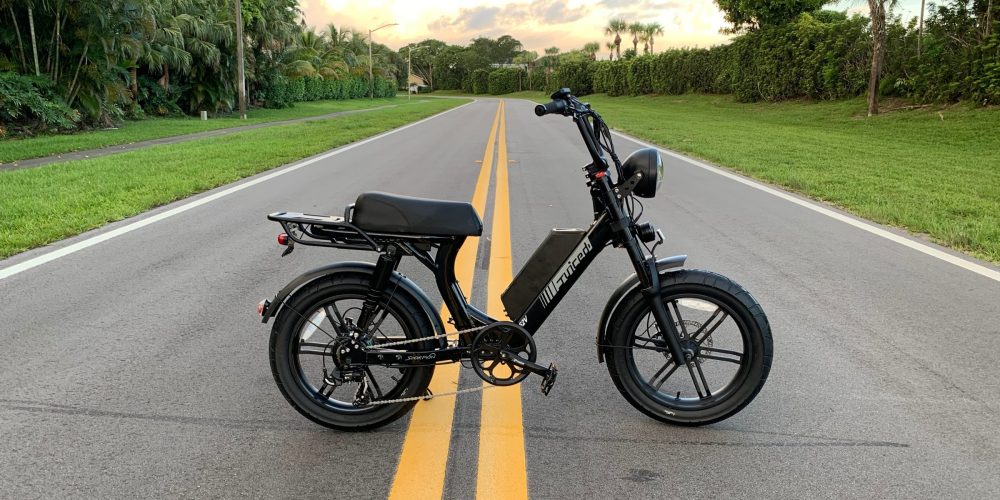
Those tariffs on e-bikes from China that Tora referenced have wreaked havoc on the US e-bike industry over the last few years. They’ve raised costs for e-bike companies that have either struggled to absorb those higher prices or have been forced to raise prices for their customers. A short exception had been granted, but its expiration at the end of 2020 has seen prices of e-bikes rise again.
The introduction of this new e-bike tax credit could help customers who have been affected by rising prices caused by the tariffs.
Lectric eBikes
Phoenix-based Lectric eBikes is once of the younger e-bike companies in the US, coming up on nearly two years of operations. But in that short time they’ve done well over $30M in sales thanks to the popularity of their low-cost
Lectric eBikes’ team shared their perspective on the proposed e-bike tax incentives with Electrek:
Lectric eBikes is pleased to support the consumer tax credit proposed in the Electric Bicycle Incentive Kickstart for the Environment (E-BIKE) Act. Lectric eBikes was founded on the belief that quality electric bikes should be fun, affordable, and widely accessible. This bill supports that vision.
At Lectric eBikes we have seen firsthand the amazing benefits of electric bikes. Aside from the obvious health benefits associated with bike riding, our environmentally friendly bikes help reduce traffic congestion and our carbon footprint. In addition, electric bikes offer an opportunity for a broader and more diverse segment of the population to enjoy the benefits of bike riding. Yet, perhaps the most understated benefit of electric bikes is the impact they have on our social fabric. We have seen our bikes rekindle dormant youthful spirits and rather than focusing on the destination, our riders have a new appreciation for the journey.
These are ideas and experiences that we hope to share with all. This bill supports that effort.
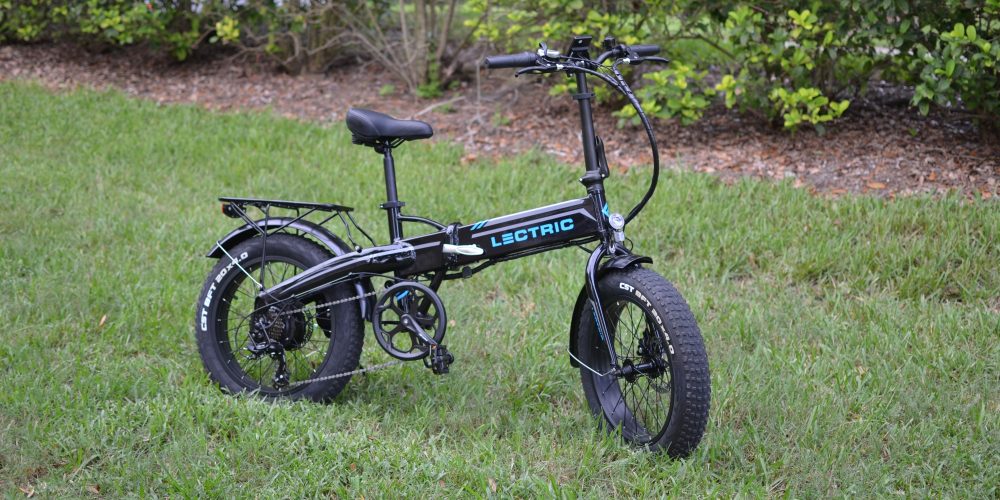
I think it’s beautiful to hear how the company has seen electric bicycles rekindle that youthful spirit in so many of its riders.
I believe Lectric eBike’s low entry prices have helped open access to lot of people who wouldn’t have considered an e-bike before, and that has been a key to much of the company’s success in such a brief period of time.
While such low-cost e-bikes don’t have the same longevity has higher-end models, their ability to democratize e-bike ownership can’t be understated.
Ride1Up
is another San Diego-based electric bicycle company that has risen to become a cost leader in the market.
While some companies have expanded their model line to include many types of recreational e-bikes like fat tire bikes, Ride1Up’s many different e-bike models are all designed around personal transportation and commuting.
The company’s newest e-bike, the , is perhaps the highest bang for your buck belt-drive e-bike I’ve ever tested.
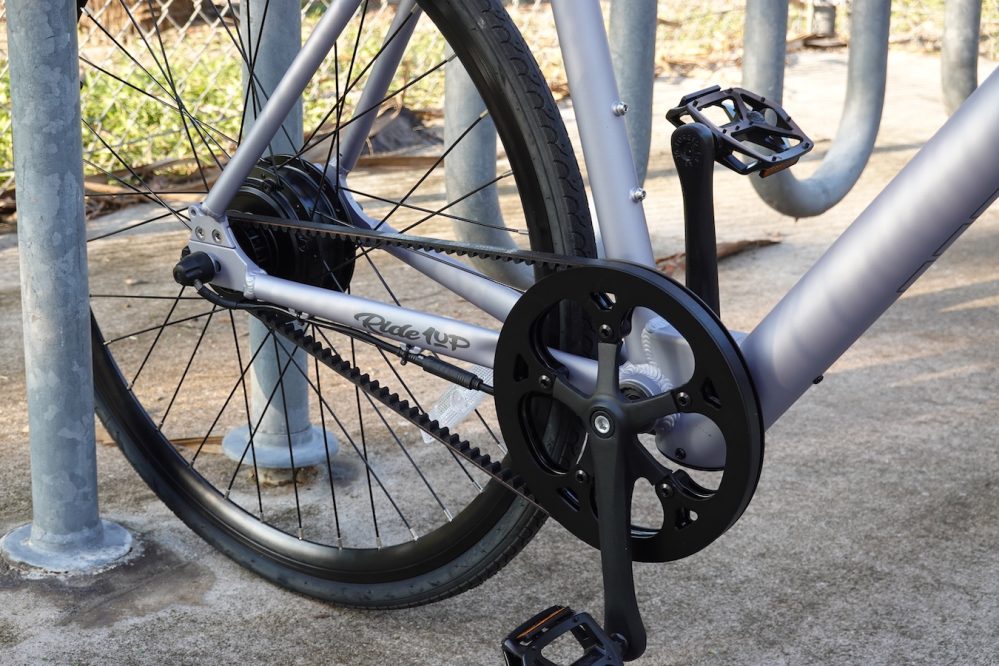
We caught up with Ride1Up’s founder Kevin Dugger to hear his thoughts on the proposed legislation:
For the past 2 years we’ve offered a ‘Go Green’ incentive, in which buyers can take a pledge on our site to save $40 off their purchase if they commit to using their eBike to replace 5 car trips per month. So far 3,205 customers have taken and applied this pledge, hopefully if genuine, replacing hundreds of thousands of car trips per year. This in essence was our entire mission and motivation in starting this business. To offer a better option for your <20 mile trips. To improve communities, make roads safer, reduce noise and pollution, and improve health and lives.
The trouble with a broad tax credit is that many buyers will just be using these electric bikes as toys, or for recreation. Loading their bikes up on car racks and driving to local parks and cruising around without needing to pedal. Obviously that is not the intended target of the subsidy. In a perfect world, there would be a way to target and reward only those buyers who are using their bikes as transportation. That is where the real positive externality occurs. To really capitalize on the massive transportation opportunity that e-bikes present, rethinking our civic planning and providing less support for automobiles is a must.
Currently, automobiles are essentially subsidized, through vast car-centric roadway projects and lack of significant taxes to account for the negative impacts of the personal automobile. Subsidizing e-bikes is a step in the right direction, but to truly make a significant difference, our roadways need to be rethought or repurposed. Here in San Diego, they closed off some streets for through-traffic and suddenly, biking became so much safer and more convenient. Unfortunately, this is likely a short-term COVID related action and not one which will last. Unfortunately, I fear it is a lot easier for politicians to propose and approve something simple and politically advantageous, like an e-bike tax credit, than to make driving less convenient by repurposing our roadways. For me, I would only select a place to live where biking is a viable form of transportation.
Regarding the pricing impact of a federal tax credit. We would keep our prices exactly the same and advertise the lower actual cost, of course. All of those savings would be directly passed onto the consumer.
Kevin raises an interesting point about the option for incentivizing e-bike use for transportation as opposed to just recreational use.
While I agree to a certain extent, I think that even recreational use of e-bikes provides important health benefits. But ultimately he is correct that the largest environmental benefits and urban congestion benefits of e-bikes are only achieved when they are actually used to remove one more car from the road. That’s a point that Ride1Up makes in a beautiful short video, if you want to check that out here.
Gocycle
Gocycle is actually a British e-bike company, but one that sells many high-end commuter electric folding bikes in the US market.
Founder and designer Richard Thorpe makes a similar point about the critical importance of incentivizing e-bikes in a way that actually sees them used to replace cars from the road.
There is no doubt that this proposal will boost e-bike adoption and I welcome this significant purchase incentive. However, for long-term societal benefit we need to focus on rewarding usage rather than ownership.
At Gocycle, we introduced a UK-first policy that sees the business pay its employees 40p per mile [approximately $0.55] when they commute to work by e-bike rather than using their car. There are countless studies that show that encouraging cycling reduces sickness levels and contributes to a more productive, healthier and happier workforce.
Governments should offer employers tax credits for example on all e-bike miles commuted. There is a wide body of research that proposes a net positive to society for each mile cycled vs. other more resource intensive methods.
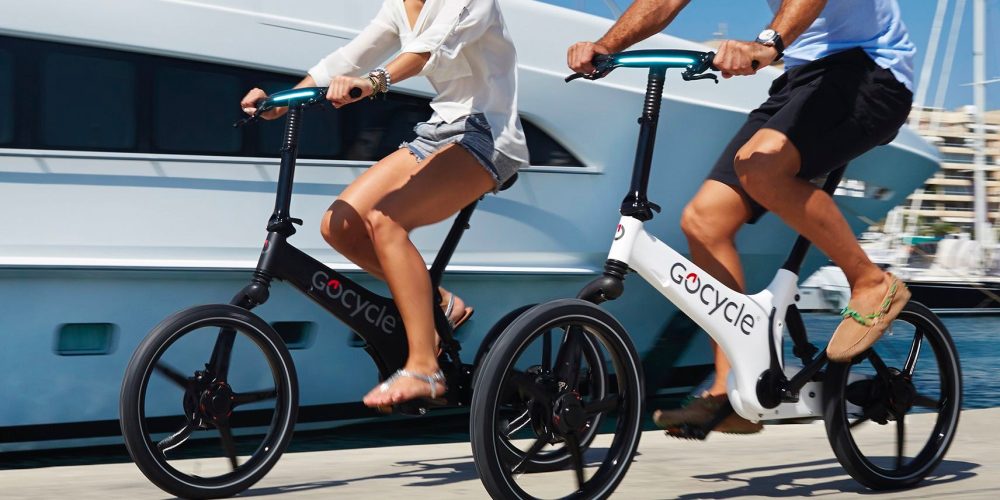
I would absolutely love to see some type of e-bike usage-based incentive provided by employers in the US. I know that when I start my day with an e-bike ride, the entire day just feels more positive.
The extensive health benefits, both physical and mental, could have a huge impact on our workforce. Sometimes an incentive is necessary though to help people realize that such benefits exist.
Watt Wagons
Boston-based Watt Wagons manufactures ultra-high-end electric bicycles that combine top-shelf components with high-power mid-drive motors. The company’s goal is to provide long-lasting e-bikes that serve as a full commuter tool that riders won’t need to replace for years and years. In that regard, they take an automotive approach to e-bikes to design in ruggedness and future proofing to improve the longevity of e-bikes.
We spoke with Watt Wagon’s CEO Pushkar Phatak and Head of Sales Amit Sondhi to hear their thoughts on the proposed e-bike incentives:
We anticipate a huge impact on the e-bike industry due to the legislation, primarily in:
1. Increase in user adoption: An ongoing credit every 3 year term will most likely encourage people further to use e-bikes. Additionally, a higher purchase limit (up to $8K) will encourage people to look for quality products rather than the cheapest products. The quality problem plagues adoption in some way since first-time users who have a bad experience with cheap bikes are less likely to say good things about the technology in general.
2. Change/increase in suburban demographic: We anticipate that this legislation will directly encourage the suburban population in a 10- to 15-mile radius from city centers. People will now have a significant incentive to replace a car with an e-bike, especially for their office commute (think traffic and parking). As e-bikes become a mainstream mode of transport, we hope that this legislation also leads to more bike paths, and road sharing, significantly improving our suburbs.
3. Upgrade in industry standards: We should see the rise of more automotive-grade e-bikes – high reliability and near-zero maintenance. Watt Wagons is leading the way with Helios and Hydra in establishing the baseline for high-performance, incredibly reliable bikes after having set a world record to demonstrate the same by completing 400 miles in 24 hours, in under a dollar of electricity. We expect an increase in new players in the premium quality segment upgrading the industry norms of quality!

One of the many aspects I love about the e-bike market is the wide range of options available.
While budget-level e-bikes open the door to more price-sensitive commuters, high-end options like Watt Wagons offer extremely high-quality e-bikes for the segment of the market that wants to pay a premium for that quality and longevity.
Tern Bicycles
Tern is another bicycle company that manufactures high-end electric and non-electric bicycles designed for city use.
Tern’s GM of North America Steve Boyd shared with us the company’s perspective on potential new US tax incentives for e-bikes:
“Here in the US bicycles are recreational in nature, frequently toys under the Christmas tree when we are young. Elsewhere in the world However, most places around the world bicycles are means of transportation.
Our goal is to make sure we’re making meaningful progress towards that direction here in the US.
While tax credits have been around for other electric vehicles for years, this bill is a significant step in recognizing electric bicycles as the life-changing transportation devices they can be.”
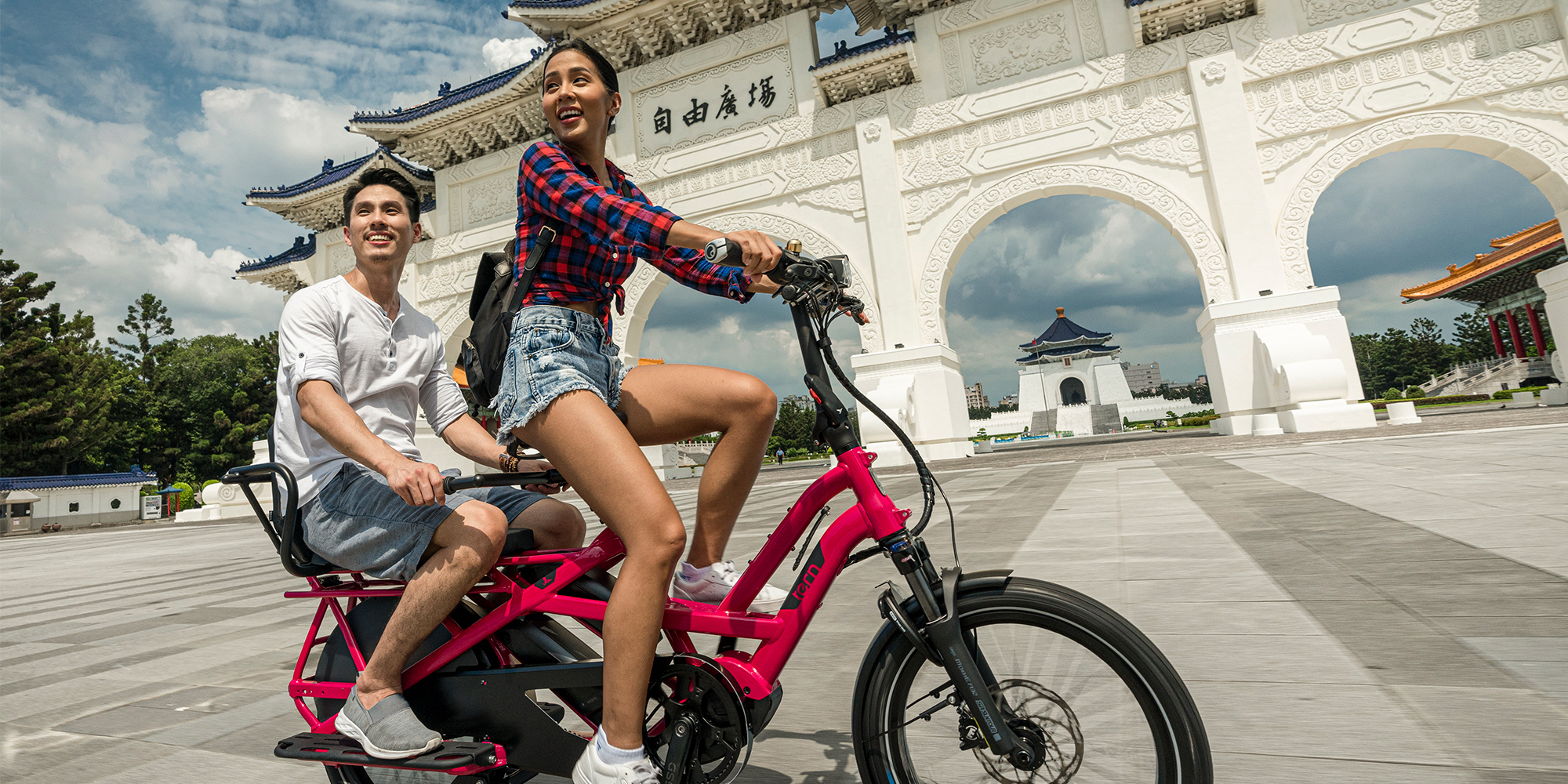
I also believe that the US has a long way to go in promoting the use of two-wheelers as legitimate commuter vehicles and true car replacers.
It’s something I’ve advocated for right alongside Tern, and I think it is something the US can achieve.
Incentives like the proposed electric bicycle tax credits could be just what this country needs – a kick in the saddle – to get rolling in the right direction.
Every e-bike that replaces a car trip is a step in the right direction.
Subscribe to Electrek on YouTube for exclusive videos and subscribe to the podcast.
Author: Micah Toll
Source: Electrek



